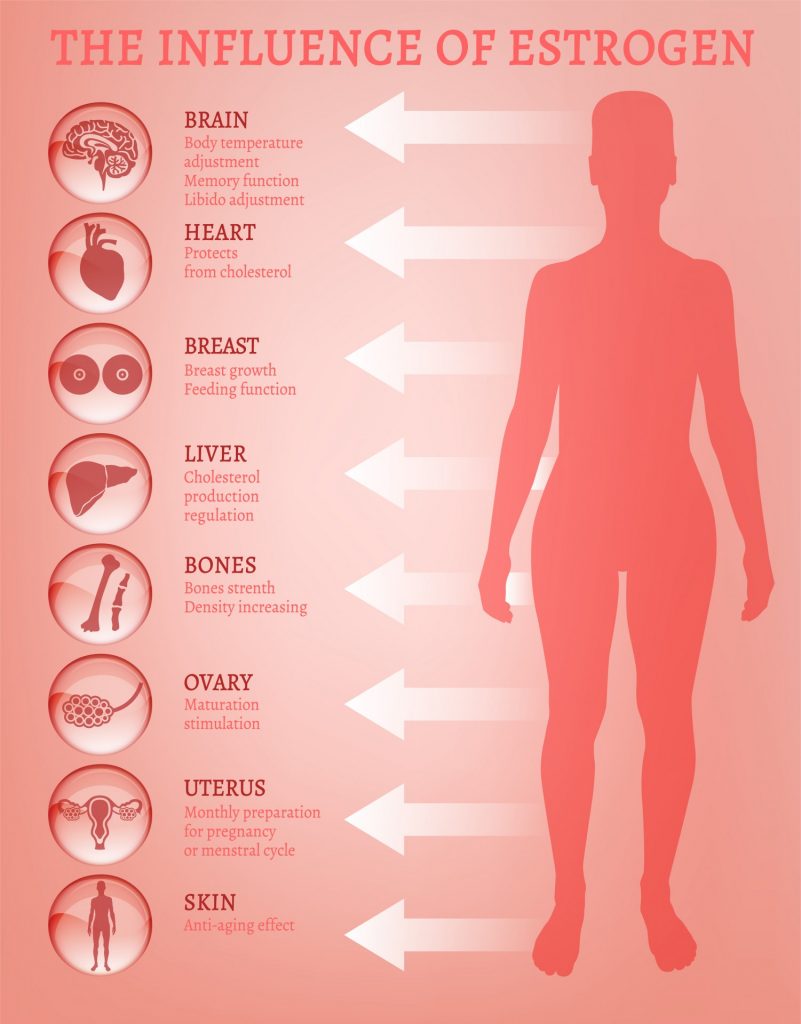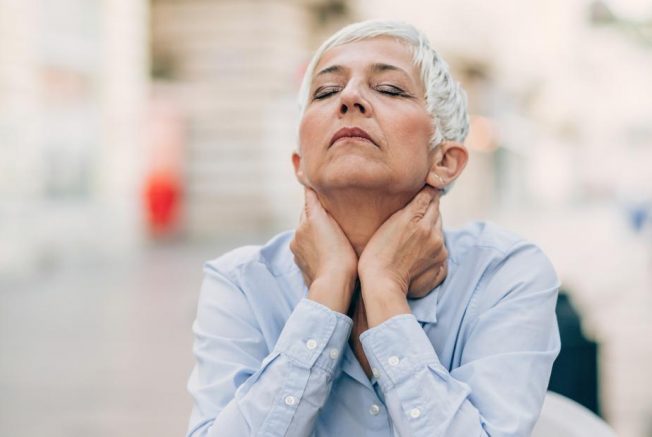Menopause is a big issue in breast cancer because many women going through treatment have to deal with treatment-induced menopause. Whilst natural menopause can be bad enough, when it is induced by treatment, the onset can be early, sudden and the symptoms more severe. We want to try to help you understand what’s going on, give you some ideas about things you can do to help yourself and let you know where you can go for help.
Let’s talk about Oestrogen
To begin with, let’s talk about oestrogen and the role it plays in your body. Once you understand what oestrogen does, it gives you a better understanding of why menopause, when oestrogen levels decrease significantly, causes the symptoms it does.
Oestrogen is most commonly associated with sexual development and fertility but its role within the body is more far-reaching. Oestrogen works in the brain, it helps form serotonin, one of the happy hormones, maintain body temperature, delay memory loss and helps regulate parts of the brain related to sex drive and reproduction. It helps bone formation and preserving bone density and reduces inflammation. It helps regulate the production of cholesterol by the liver, reducing the risk of buildup in the arteries that can lead to heart disease. In the skin, it improves collagen content and quality, increases skin thickness and improves blood supply. Oestrogen also affects melanin, which relates to hair colour and can affect levels of melatonin, which affects sleep.

Can you see the connection between menopause symptoms and oestrogen? Oestrogen has a lot more to answer for than just our periods!
Breast Cancer and Menopause
Most women go through menopause between the ages of 45 and 55 but a diagnosis of breast cancer can change this for women and there are a number of reasons why.
- When women are diagnosed with breast cancer anyone who is on hormone replacement therapy is normally told to stop it. This can lead to a dramatic drop in oestrogen can result a return of menopause symptoms.
- Chemotherapy can bring on early menopause and this may be temporary or permanent but the closer you are to 50 the more likely it is to be permanent.
- Tamoxifen and aromatase inhibitors are hormone blocking treatments for breast cancer that block the action of oestrogen. They can cause menopause symptoms in women of all ages, even those that have been asymptomatic for years. This is because even when your ovaries are no longer producing oestrogen there is still a small amount produced by the body and these treatments block that action resulting in a return of the menopause symptoms.
- Surgery to remove the ovaries (an oophorectomy) sometimes occurs in breast cancer treatment. If you are pre-menopausal, removal of the ovaries will bring on permanent menopause and will cause a sudden and permanent drop in your hormone levels.
In all of these instances, the level of oestrogen drops quickly and, in the case of hormone blocking treatments, strips the body of residual oestrogen. This can lead to a sudden onset of symptoms that can be more severe than if the levels drop naturally.
About two-thirds of women who are younger than 50 when their breast cancer is diagnosed will go through menopause because of their treatment. If you are peri-menopausal when treatment begins, you may move into menopause more quickly than if you were not receiving treatment. Other women may experience temporary menopausal symptoms. This will depend on the type of treatment and the woman’s age.
Every women’s experience of menopause and menopause symptoms is different. What is important to remember is that you are not alone, there is help out there for you. You can talk to your breast care nurse and they may be able to refer you for further assistance. Just call the office on 9324 3703. There are also some great resources online. Check out:
- https://www.canceraustralia.gov.au/publications-and-resources/cancer-australia-publications/managing-menopausal-symptoms-after-breast-cancer-guide-women
- https://www.news-medical.net/health/What-Does-Estrogen-Do.aspx
- https://www.menopause.org.au/
- https://www.jeanhailes.org.au/health-a-z/menopause/menopause-after-cancer
- https://www.bci.org.au/breast-cancer-information/fact-sheets/menopause/

